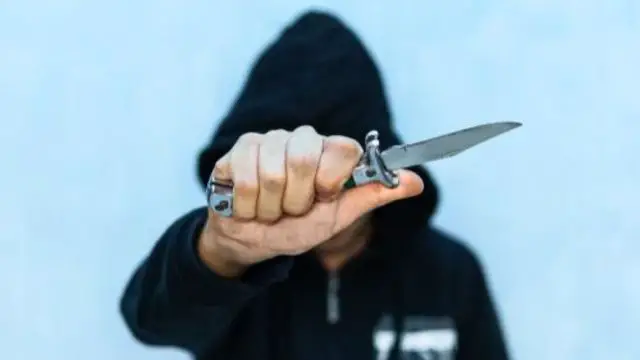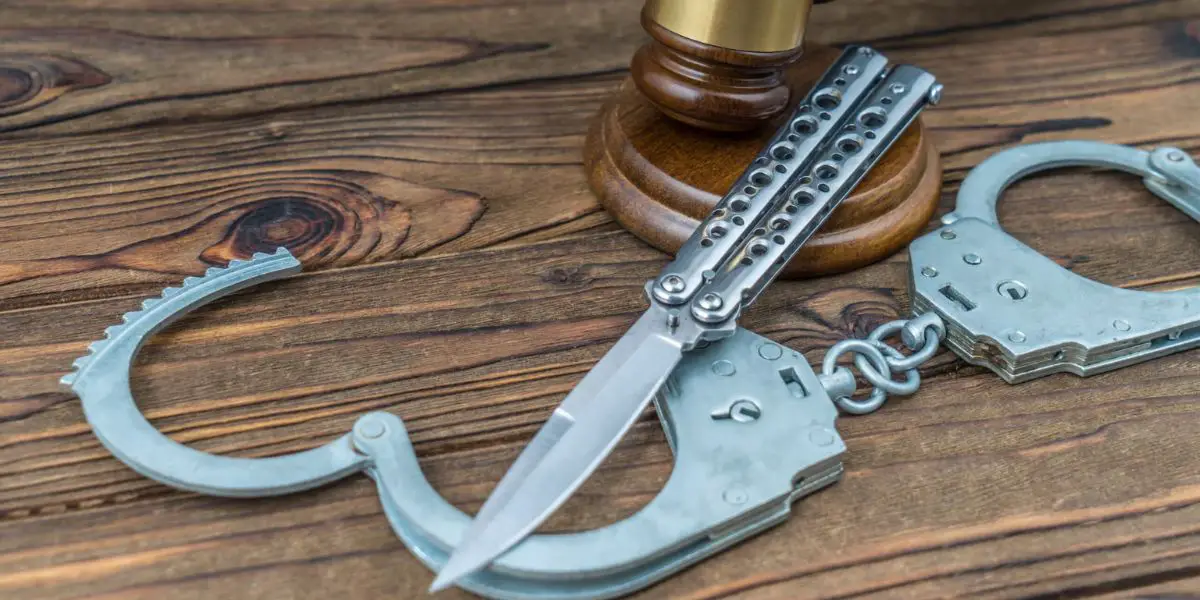Pocket knives are a popular everyday carry item for many people, useful for a variety of tasks from opening packages to performing quick repairs. However, just like any tool, there are specific laws governing the possession and use of pocket knives, and those laws can vary significantly depending on where you live.
New York, with its diverse range of urban and rural areas, has a unique set of regulations that you should understand before carrying a pocket knife.
If you’re considering carrying a pocket knife in New York, it’s crucial to be aware of both state and local laws to ensure you’re not breaking any rules.
In this article, we’ll break down the key points of New York’s pocket knife laws, including what is legal, what isn’t, and what you should keep in mind when carrying a pocket knife in the state.
1. Defining Pocket Knives in New York
Before diving into the legal aspects, it’s important to define what constitutes a “pocket knife” in New York law. A pocket knife is generally a small, folding knife with a blade that can be concealed within the handle. These knives are often used for utility purposes and are designed to be compact and portable.
New York law does not have a specific definition for “pocket knives,” but it does make distinctions between different types of knives, especially in regard to how and where they are carried. For legal purposes, pocket knives are typically treated the same as folding knives, utility knives, or small fixed-blade knives, depending on their size and function.
2. General Laws for Carrying Pocket Knives in New York
Statewide Laws
New York law places restrictions on the possession, carrying, and use of knives, including pocket knives. The key legal statute regarding knives in New York is New York Penal Law Section 265, which covers weapons possession, including knives. Here are the main provisions that relate to pocket knives:
- Concealed Carry: It is illegal to carry a concealed weapon, including a pocket knife, with the intent to use it unlawfully. If a pocket knife is hidden from view (concealed), and there is an intention to use it as a weapon, this could result in criminal charges. For example, carrying a pocket knife in your pocket in a concealed manner might not be illegal in itself, but if the intent is to use it to harm someone, it could be considered unlawful possession of a weapon.
- Dangerous Instruments: Pocket knives can also fall under the category of “dangerous instruments” if they are carried with the intent to use them to harm others. If a pocket knife is considered a weapon in the eyes of the law, this could lead to charges of possession of a dangerous weapon or unlawful possession.
- Blade Length: While New York does not have a specific blade length limitation for all knives, it does have some regulations concerning the carrying of knives with long blades, especially if they are considered “gravity knives” or “switchblades” (knives with blades that can be automatically extended with the push of a button). If a pocket knife has a blade that is easily deployable and can be extended rapidly, it may fall under these restrictions.
Open Carry
Unlike some states, New York does not have laws prohibiting the open carry of knives, such as carrying a pocket knife openly in a belt sheath. However, even if a knife is openly carried, it still must not be carried with the intent to use it unlawfully. The knife cannot be used to intimidate or threaten others, and in some cases, even carrying a knife in public could raise suspicions of criminal intent, especially in more densely populated urban areas like New York City.
3. New York City and Local Regulations

While state law provides a framework for knife possession, New York City has stricter regulations when it comes to knives, including pocket knives. In the city, the law is particularly strict about the types of knives that are allowed, and the penalties for violating knife laws can be severe.
New York City Knife Laws
- Switchblades and Gravity Knives: In New York City, it is illegal to possess switchblades or gravity knives, regardless of whether the knife is concealed or not. These types of knives, which can be opened automatically or with a flick of the wrist, are specifically prohibited. Even if a pocket knife doesn’t meet the traditional definition of a switchblade or gravity knife, it could still be considered illegal if it’s capable of being opened quickly with one hand.
- Concealed Carry: While New York City allows the open carry of knives, carrying a pocket knife concealed (especially one that’s easily deployable) could lead to legal trouble. New York City law is particularly concerned with the potential for knives to be used as weapons, so even small, folding knives could be considered a weapon if carried with intent to harm.
- Penalties: If you are caught violating New York City’s knife laws, the penalties can include fines, arrest, and potential jail time. For example, unlawful possession of a dangerous knife can lead to a misdemeanor charge, while possession of a prohibited knife like a gravity knife can result in felony charges.
4. Exceptions and Special Considerations
Knife Skills 101: 5 Crucial Rules for Cutting Vegetables – Interesting Something For You
While there are clear legal restrictions on carrying pocket knives in certain places, there are some exceptions where you may be allowed to carry or possess a knife:
- Law Enforcement and Military Personnel: Certain individuals, such as law enforcement officers or military personnel, may have exceptions to the laws regarding knives, particularly in relation to weapons possession.
- Self-Defense: If you are carrying a pocket knife for self-defense purposes, you must be prepared to justify your intent. Simply carrying a pocket knife with the intent to defend yourself is not enough if you are caught using the knife inappropriately. The law heavily scrutinizes the intent behind carrying any type of weapon.
- Outdoor and Recreational Use: In many cases, knives (including pocket knives) are permitted for legitimate recreational use, such as camping, hunting, or fishing. However, it is important to ensure that the knife is being used for these lawful purposes and not carried as a weapon.
5. Where Pocket Knives Are Prohibited
Regardless of whether you’re carrying a pocket knife legally, there are certain places where knives are prohibited:
- Schools: It is illegal to carry any type of knife (including pocket knives) on school property in New York, whether concealed or openly carried.
- Government Buildings: Pocket knives are also prohibited in certain government buildings, including courthouses and state offices.
- Public Transportation: Carrying a pocket knife on public transportation, particularly in New York City, can also be problematic. Many transit systems have rules prohibiting knives as part of their weapons policy.
Conclusion: What You Need to Know About Carrying a Pocket Knife in New York
In New York, carrying a pocket knife is generally legal, but there are important rules and restrictions to keep in mind. State law allows for the possession and carrying of pocket knives, but carrying them concealed or with the intent to use them unlawfully could lead to criminal charges.
In New York City, knife laws are more stringent, especially when it comes to switchblades, gravity knives, and concealed knives. It’s important to be familiar with both state and local regulations to avoid legal trouble. Always carry a pocket knife for lawful purposes, and ensure you are following all restrictions, particularly in urban areas where knife laws can be more restrictive.
By staying informed and abiding by the laws, you can safely and legally carry a pocket knife in New York.




